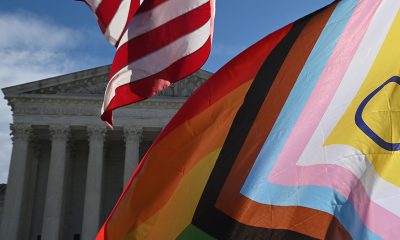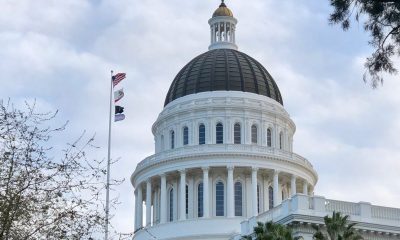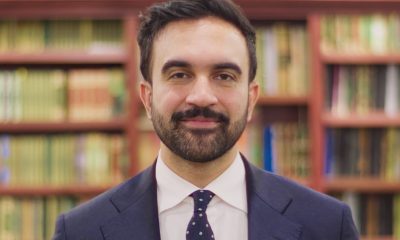National
U.S. lawmakers spurn Ugandan LGBT activists
Inhofe-led delegation to reportedly meet with East African country’s president

A congressional delegation is scheduled to meet with Ugandan President Yoweri Museveni in his country’s capital on Jan. 23. (Photo by the U.K. Department for International Development; courtesy Wikimedia Commons)
The Washington Blade has learned a congressional delegation is expected to meet with Ugandan President Yoweri Museveni next week amid outrage over the passage of a bill that would impose a life sentence upon anyone found guilty of repeated same-sex sexual acts.
U.S. Sen. Jim Inhofe (R-Okla.) will lead the delegation that includes U.S. Reps. Vern Buchanan (R-Fla.), Ander Crenshaw (R-Fla.), Ann Kirkpatrick (D-Ariz.) and Erik Paulsen who are scheduled to travel to Uganda on Jan. 23. A source familiar with the trip told the Blade the lawmakers are scheduled to meet with Museveni while they are in the East African country.
A copy of an itinerary the source forwarded to the Blade indicates the lawmakers will also travel to Germany, Turkey, Jordan, the United Arab Emirates, Rwanda and Niger before returning to the U.S. on Jan. 26.
“The purpose of the CODEL’s (congressional delegation’s) engagements in Africa is to better understand how to address the ‘Arc of Instability’ through the center of Africa so the SASC (Senate Armed Services Committee) can support USG (U.S. government) efforts to address the underlying causes of our problems on the continent rather than just reacting to the symptoms,” it reads.
The source familiar with the trip told the Blade the delegation will focus on efforts to combat the Lord’s Resistance Army that led a bloody insurgency against the Ugandan government from 1986-2006. Inhofe and other U.S. lawmakers are also expected to discuss counter-terrorism efforts against the Somali Islamist militant group al-Shabab, the escalating conflict in South Sudan and “other U.S. interests.”
The source told the Blade the lawmakers have rejected Ugandan LGBT rights advocates’ requests to meet with them while in the East African country.
“We understand that Sen. Inhofe will be meeting with President Museveni and we believe other officials in Uganda on Jan. 23,” Maria Burnett of Human Rights Watch told the Blade on Friday. “We understand that they have been close for many, many years and maintain a great deal of dialogue on a range of issues. And given the recent events on the Anti-Homosexuality Bill, it seems like a crucial time for Sen. Inhofe to restate his lack of support of the bill quite clearly.”
Ugandan lawmakers on Dec. 20 approved the Anti-Homosexuality Bill that originally contained a provision that would have imposed the death penalty on anyone found guilty of repeated same-sex sexual acts. The measure would also criminalize the promotion of homosexuality.
The White House, Florida Congresswoman Ileana Ros-Lehtinen and U.N. High Commissioner for Human Rights Navi Pillay are among those who criticized the measure’s passage. Richard Branson, founder of the Virgin Group, announced after Ugandan lawmakers approved the Anti-Homosexuality Bill that his company would not do business in the country.
Museveni’s spokesperson told Agence France-Presse on Jan. 2 the Ugandan president “won’t rush” to sign the measure into law. A Ugandan newspaper on Friday reported Museveni has blocked the bill because Parliament Speaker Rebecca Kadaga allowed a vote on the measure without the required number of lawmakers needed for quorum.
Uganda is among the more than 70 countries in which homosexuality remains criminalized.
The Center for Constitutional Rights in March 2012 filed a federal lawsuit against Scott Lively in Massachusetts on behalf of Sexual Minorities Uganda, a Ugandan LGBT advocacy group, that accuses the evangelical Christian of exploiting homophobic attitudes in the East African country and encouraging lawmakers to approve the Anti-Homosexuality Bill. U.S. District Judge Michael A. Posner of the U.S. District Court for the District of Massachusetts last August ruled the group’s lawsuit can move forward.
Ugandan Parliamentarian David Bahati, who introduced the Anti-Homosexuality Bill in 2009, has ties to the Fellowship Foundation, a Christian evangelical group that hosts the annual National Prayer Breakfast in D.C. Inhofe is also closely aligned with the secretive organization also known as “The Family.”
The Oklahoma Republican told MSNBC host Rachel Maddow during a 2012 interview he had “never heard” of Bahati when she asked him about the parliamentarians’ claims the idea for the Anti-Homosexuality Bill came from a conversation he had with members of the Fellowship.
“I do not, nor have I ever, supported or condoned this legislation,” said Inhofe in an Oct. 2011 statement to the website Red Dirt Report. “It is my hope that Uganda will abandon this unjust and extraordinarily harsh legislation.”
The Oklahoma Republican has not publicly spoken about the measure since Ugandan lawmakers approved it.
“Frankly this is not the only human rights issue that we think would be important for a high-level American delegation to raise with President Museveni,” Burnett told the Blade. “We have a lot of other concerns, such as obstacles to Ugandans rights to expression and assembly, but Senator Inhofe happens to be going at a particularly significant moment in the course of this bill.”
Inhofe’s spokesperson, Donelle Harder, denied reports the delegation will meet with the Ugandan president while in his country.
“It appears someone gave you a bad itinerary as the members are not meeting with Museveni,” she told the Blade. “Sen. Inhofe will be in Uganda briefly to meet with local officials regarding the [Lord’s Resistance Army.]”
A U.S. State Department spokesperson deferred to the staffers of the delegation members.
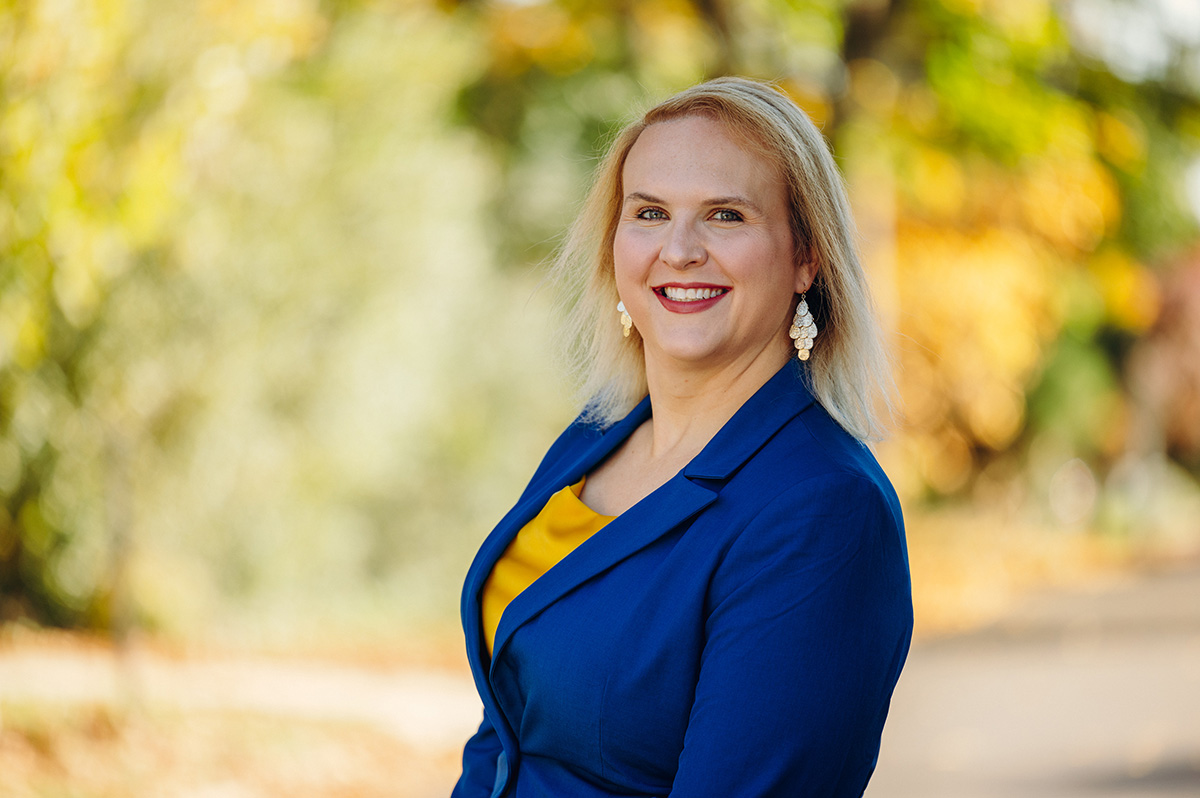
Erica Deuso will become the first openly transgender mayor in Pennsylvania.
Voters in Downingtown elected Deuso on Tuesday with 64 percent of the vote, according to the Philadelphia Inquirer. The Democrat ran against Republican Richard Bryant.
Deuso, 45, currently works at Johnson & Johnson and has lived in Downingtown since 2007. The mayor-elect is originally from Vermont and graduated from Drexel University.
Deuso released a statement following her election, noting that “history was made.”
“Voters chose hope, decency, and a vision of community where every neighbor matters,” Deuso stated. “I am deeply honored to be elected as Pennsylvania’s first openly transgender mayor, and I don’t take that responsibility lightly.”
According to a LGBTQ+ Victory Institute report released in June, the U.S. has seen a 12.5 percent increase in trans elected officials from 2024 to 2025. Still, Deuso’s campaign did not heavily focus on LGBTQ policy or her identity. She instead prioritized public safety, environmental resilience, and town infrastructure, according to Deuso’s campaign website.
Deuso has served on the boards of the Pennsylvania Equality Project, PFLAG West Chester/Chester County, and Emerge Pennsylvania, according to the LGBTQ+ Victory Fund. She is also an executive member of the Chester County Democratic Committee.
“This victory isn’t about one person, it’s about what happens when people come together to choose progress over fear. It’s about showing that leadership can be compassionate, practical, and focused on results. Now the real work begins, building a Downingtown that is safe, sustainable, and strong for everyone who calls it home,” Deuso said.
Downingtown has a population of more than 8,000 people and is a suburb of Philadelphia. The town’s current mayor, Democrat Phil Dague, did not seek a second term.
Janelle Perez, the executive director of LPAC, celebrated Deuso’s victory. The super PAC endorses LGBTQ women and nonbinary candidates with a commitment to women’s equality and social justice, including Deuso.
“Downingtown voters delivered a resounding message today, affirming that Erica represents the inclusive, forward-looking leadership their community deserves, while rejecting the transphobic rhetoric that has become far too common across the country,” Perez said. “Throughout her campaign, Erica demonstrated an unwavering commitment to her future constituents and the issues that matter most to them. LPAC is proud to have supported her from the beginning of this historic campaign, and we look forward to the positive impact she will have as mayor of Downingtown.”
Deuso will be sworn in as mayor on Jan. 7.
U.S. Supreme Court
LGBTQ legal leaders to Supreme Court: ‘honor your president, protect our families’
Experts insist Kim Davis case lacks merit
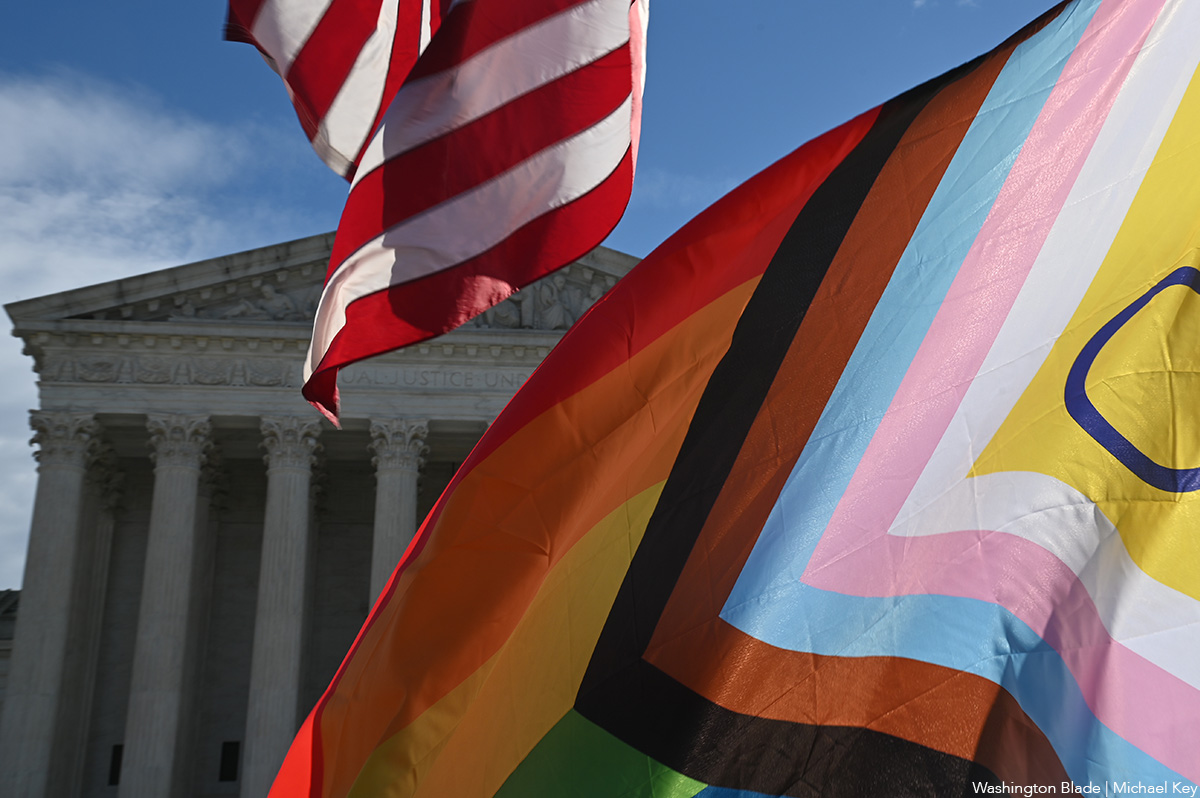
The U.S. Supreme Court considered hearing a case from Kim Davis on Friday that could change the legality of same-sex marriage in the United States.
Davis, best known as the former county clerk for Rowan County, Ky., who defied federal court orders by refusing to issue marriage licenses to same-sex couples — and later, to any couples at all — is back in the headlines this week as she once again attempts to get Obergefell v. Hodges overturned on a federal level.
She has tried to get the Supreme Court to overturn this case before — the first time was just weeks after the initial 2015 ruling — arguing that, in her official capacity as a county clerk, she should have the right to refuse same-sex marriage licenses based on her First Amendment rights. The court has emphatically said Davis, at least in her official capacity as a county clerk, does not have the right to act on behalf of the state while simultaneously following her personal religious beliefs.
The Washington Blade spoke with Karen Loewy, interim deputy legal director for litigation at Lambda Legal, the oldest and largest national legal organization advancing civil rights for the LGBTQ community and people living with HIV through litigation, education, and public policy, to discuss the realistic possibilities of the court taking this case, its potential implications, and what LGBTQ couples concerned about this can do now to protect themselves.
Loewy began by explaining how the court got to where it is today.
“So Kim Davis has petitioned the Supreme Court for review of essentially what was [a] damages award that the lower court had given to a couple that she refused a marriage license to in her capacity as a clerk on behalf of the state,” Loewy said, explaining Davis has tried (and failed) to get this same appeal going in the past. “This is not the first time that she has asked the court to weigh in on this case. This is her second bite at the apple at the U.S. Supreme Court, and in 2020, the last time that she did this, the court denied review.”
Davis’s entire argument rests on her belief that she has the ability to act both as a representative of the state and according to her personal religious convictions — something, Loewy said, no court has ever recognized as a legal right.
“She’s really claiming a religious, personal, religious exemption from her duties on behalf of the state, and that’s not a thing.”
That, Loewy explained, is ultimately a good thing for the sanctity of same-sex marriage.
“I think there’s a good reason to think that they will, yet again, say this is not an appropriate vehicle for the question and deny review.”
She also noted that public opinion on same-sex marriage remains overwhelmingly positive.
“The Respect for Marriage Act is a really important thing that has happened since Obergefell. This is a federal statute that mandates that marriages that were lawfully entered, wherever they were lawfully entered, get respect at the federal level and across state lines.”
“Public opinion around marriage has changed so dramatically … even at the state level, you’re not going to see the same immediate efforts to undermine marriages of same-sex couples that we might have a decade ago before Obergefell came down.”
A clear majority of U.S. adults — 65.8 percent — continue to support keeping the Obergefell v. Hodges decision in place, protecting the right to same-sex marriage. That support breaks down to 83 percent of liberals, 68 percent of moderates, and about half of conservatives saying they support marriage equality. These results align with other recent polling, including Gallup’s May 2025 estimate showing 68 percent support for same-sex marriage.
“Where we are now is quite different from where we were in terms of public opinion … opponents of marriage equality are loud, but they’re not numerous.”
Loewy also emphasized that even if, by some chance, something did happen to the right to marry, once a marriage is issued, it cannot be taken back.
“First, the Respect for Marriage Act is an important reason why people don’t need to panic,” she said. “Once you are married, you are married, there isn’t a way to sort of undo marriages that were lawfully licensed at the time.”
She continued, explaining that LGBTQ people might feel vulnerable right now as the current political climate becomes less welcoming, but there is hope — and the best way to respond is to move thoughtfully.
“I don’t have a crystal ball. I also can’t give any sort of specific advice. But what I would say is, you know, I understand people’s fear. Everything feels really vulnerable right now, and this administration’s attacks on the LGBTQ community make everybody feel vulnerable for really fair and real reasons. I think the practical likelihood of Obergefell being reversed at this moment in time is very low. You know, that doesn’t mean there aren’t other, you know, case vehicles out there to challenge the validity of Obergefell, but they’re not on the Supreme Court’s doorstep, and we will see how it all plays out for folks who feel particularly concerned and vulnerable.”
Loewy went on to say there are steps LGBTQ couples and families can take to safeguard their relationships, regardless of what the court decides. She recommended getting married (if that feels right for them) and utilizing available legal tools such as estate planning and relationship documentation.
“There are things, steps that they can take to protect their families — putting documentation in place and securing relationships between parents and children, doing estate planning, making sure that their relationship is recognized fully throughout their lives and their communities. Much of that is not different from the tools that folks have had at their disposal prior to the availability of marriage equality … But I think it behooves everyone to make sure they have an estate plan and they’ve taken those steps to secure their family relationships.”
“I think, to the extent that the panic is rising for folks, those are tools that they have at their disposal to try and make sure that their family and their relationships are as secure as possible,” she added.
When asked what people can do at the state and local level to protect these rights from being eroded, Loewy urged voters to support candidates and initiatives that codify same-sex marriage at smaller levels — which would make it more difficult, if not impossible, for a federal reversal of Obergefell to take effect.
“With regard to marriage equality … states can be doing … amend state constitutions, to remove any of the previous language that had been used to bar same-sex couples from marrying.”
Lambda Legal CEO Kevin Jennings echoed Loewy’s points in a statement regarding the possibility of Obergefell being overturned:
“In the United States, we can proudly say that marriage equality is the law,” he said via email. “As the Supreme Court discusses whether to take up for review a challenge to marriage equality, Lambda Legal urges the court to honor what millions of Americans already know as a fundamental truth and right: LGBTQ+ families are part of the nation’s fabric.
“LGBTQ+ families, including same-sex couples, are living in and contributing to every community in this country: building loving homes and small businesses, raising children, caring for pets and neighbors, and volunteering in their communities. The court took note of this reality in Obergefell v. Hodges, citing the ‘hundreds of thousands of children’ already being raised in ‘loving and nurturing homes’ led by same-sex couples. The vows that LGBTQ+ couples have taken in their weddings might have been a personal promise to each other. Still, the decision of the Supreme Court is an unbreakable promise affirming the simple truth that our Constitution guarantees equal treatment under the law to all, not just some.”
He noted the same things Loewy pointed out — namely that, at minimum, the particular avenue Davis is attempting to use to challenge same-sex marriage has no legal footing.
“Let’s be clear: There is no case here. Granting review in this case would unnecessarily open the door to harming families and undermine our rights. Lower courts have found that a government employee violates the law when she refuses to grant marriage licenses to same-sex couples as her job requires. There is no justifiable reason for the court to revisit settled law or destabilize families.”
He also addressed members of the LGBTQ community who might be feeling fearful at this moment:
“To our community, we say: this fight is not new. Our community has been fighting for decades for our right to love whom we love, to marry and to build our families. It was not quick, not easy, not linear. We have lived through scary and dark times before, endured many defeats, but we have persevered. When we persist, we prevail.”
And he issued a direct message to the court, urging justices to honor the Constitution over one person’s religious beliefs.
“To the court, we ask it to honor its own precedent, to honor the Constitution’s commands of individual liberty and equal protection under the law, and above all, to honor the reality of LGBTQ families — deeply rooted in every town and city in America. There is no reason to grant review in this case.”
Kenneth Gordon, a partner at Brinkley Morgan, a financial firm that works with individuals and couples, including same-sex partners, to meet their legal and financial goals, also emphasized the importance of not panicking and of using available documentation processes such as estate planning.
“From a purely legal standpoint, overturning Obergefell v. Hodges would present significant complications. While it is unlikely that existing same-sex marriages would be invalidated, particularly given the protections of the 2022 Respect for Marriage Act, states could regain the authority to limit or prohibit future marriage licenses to same-sex couples. That would create a patchwork of laws across the country, where a couple could be legally married in one state but not recognized as married if they moved to or even visited another state.
“The legal ripple effects could be substantial. Family law issues such as adoption, parental rights, inheritance, health care decision-making, and property division all rely on the legal status of marriage. Without uniform recognition, couples could face uncertainty in areas like custody determinations, enforcement of spousal rights in medical emergencies, or the ability to inherit from a spouse without additional legal steps.
“Courts generally strive for consistency, and creating divergent state rules on marriage recognition would reintroduce conflicts that Obergefell was intended to resolve. From a legal systems perspective, that inconsistency would invite years of litigation and impose significant personal and financial burdens on affected families.”
Finally, Human Rights Campaign President Kelley Robinson issued a statement about the possibility of the Supreme Court deciding to hear Davis’s appeal:
“Marriage equality isn’t just the law of the land — it’s woven into the fabric of American life,” said Robinson. “For more than a decade, millions of LGBTQ+ couples have gotten married, built families, and contributed to their communities. The American people overwhelmingly support that freedom. But Kim Davis and the anti-LGBTQ+ extremists backing her see a cynical opportunity to attack our families and re-litigate what’s already settled. The court should reject this paper-thin attempt to undermine marriage equality and the dignity of LGBTQ+ people.”
U.S. Supreme Court
Supreme Court rules White House can implement anti-trans passport policy
ACLU, Lambda Legal filed lawsuits against directive.

The U.S. Supreme Court on Thursday said the Trump-Vance administration can implement a policy that bans the State Department from issuing passports with “X” gender markers.
President Donald Trump once he took office signed an executive order that outlined the policy. A memo the Washington Blade obtained directed State Department personnel to “suspend any application where the applicant is seeking to change their sex marker from that defined in the executive order pending further guidance.”
The White House only recognizes two genders: male and female.
The American Civil Liberties Union in February filed a lawsuit against the passport directive on behalf of seven trans and nonbinary people.
A federal judge in Boston in April issued a preliminary junction against it. A three-judge panel on the 1st U.S. Circuit Court of Appeals in September ruled against the Trump-Vance administration’s motion to delay the move.
A federal judge in Maryland also ruled against the passport policy. (Lambda Legal filed the lawsuit on behalf of seven trans people.)
“This is a heartbreaking setback for the freedom of all people to be themselves, and fuel on the fire the Trump administration is stoking against transgender people and their constitutional rights,” said Jon Davidson, senior counsel for the ACLU’s LGBTQ and HIV Project, in a statement. “Forcing transgender people to carry passports that out them against their will increases the risk that they will face harassment and violence and adds to the considerable barriers they already face in securing freedom, safety, and acceptance. We will continue to fight this policy and work for a future where no one is denied self-determination over their identity.”
Justices Ketanji Brown Jackson, Elena Kagan, and Sonia Sotomayor dissented.
The Supreme Court ruling is here.
-

 District of Columbia3 days ago
District of Columbia3 days ago‘Sandwich guy’ not guilty in assault case
-

 Sports3 days ago
Sports3 days agoGay speedskater racing toward a more inclusive future in sports
-

 Michigan5 days ago
Michigan5 days agoFBI thwarts Halloween terror plot targeting Mich. LGBTQ bars
-

 New Jersey4 days ago
New Jersey4 days agoBlue wave hits Northeast: Sherrill and Mamdani lead Democratic comeback

